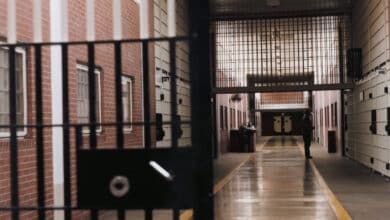- Many legislators support more transparency in the legislative process, so we are hopeful they will make themselves heard so the people can be heard.
 On Friday, we reported on severe restrictions being proposed on the ability of the public to go to committee meetings of the Arkansas legislature.
On Friday, we reported on severe restrictions being proposed on the ability of the public to go to committee meetings of the Arkansas legislature.
After our article was posted we were kindly provided a copy of draft rules. Here is a LINK to what we received but be aware the legislature’s proposal could change.
After further review the restrictions are just as severe as we had heard, but the proposed rules include attempts to protect some public participation in committee meetings while addressing legislator concerns over Covid-19.
We can see the legislature worked hard to provide some public access amid the Covid-19 pandemic. We also note the proposed rules include a major reform which limits the list of bills that may be considered at the committee meeting. This change will reduce the surprises to the public who in the past had to guess whether any of a long list of bills might come up in committee. Sometimes groups of people wanting to weigh in on a bill have made multiple trips to Little Rock to speak on a bill only to find out at the end of the meeting the bill would not come up for consideration. So, this is a significant and welcome change.
Again the restriction on the public are severe.
Should there be any restrictions on public attendance at all? We will leave that discussion for some other time. Right now we are looking at the negative impact on the public and additional steps that need to be taken because of the drastic reduction in transparency.
HUGE CHANGE IN COMMITTEE PROCESS
There is going to be a major disruption in the public’s ability to be present at committee meetings and make their voices heard. This is due in large part to Covid-19 making it harder for a person to decide to go to Little Rock and attend a committee meeting. And it is also due in part to the proposed rules which, despite the effort to provide some public participation, is still a huge departure from the past.
Later in this article we make three suggestions for additional rule changes to help the public in this time of Covid-19 restrictions.
The legislative proposal tries to include public participation through: 1. Allowing a person signed up to speak on a bill to come into the committee room and testify; 2. Providing sign up sheets to speak; 3. Providing holding areas for speakers awaiting their turn to speak; and 4. Providing other areas in the Capitol for members of the public to watch.
Public participation in a committee has been an ally to legislators who agree with the public on passing or killing a bill and has been a foe of a legislator who disagrees with the crowd. So, the legislature isn’t against public participation in general. This is a Covid-19 thing.
Despite all the steps included in the draft rules, it doesn’t change the fact that the restriction on public attendance fundamentally changes the legislative process. Just how restrictive the proposed rules will be can been seen by this statement in the draft rules.
“Due to restraints on space and physical distancing required in committee rooms and public comment holding rooms, only a member of the public who is present to testify on a bill that is listed on a committee agenda will be allowed in a committee room or public comment holding room.”
Again, the limits on public attendance is a HUGE change in the legislative process! And, if we have to have these limits much more needs to be done to protect the public interest.
THREE SIMPLE RECOMMENDATIONS
We have three recommendations for additional rules changes to help the public in this time of Covid-19. Our recommendations will help but cannot totally fix the huge barriers to transparency and public participation. Our recommendations cost nothing and will require minimal time by legislative staff.
#1. Post All Committee Roll Call Votes on the Legislative Website.
Sometimes a committee vote is by voice vote but on some of the more controversial bills the committee will request a roll call vote and each legislator’s vote will be entered in the record.
When a roll call is taken it has been common for members of the public who are in attendance to go to the committee staff immediately after the meeting and ask for a copy of the roll call vote. Catching staff at the end of the meeting is the quickest way to get the vote and share it with other interested members of the public. Time matters because a bill passed in committee will soon be considered by the full House or Senate for passage and it takes time to get the word out and for individuals to contact their legislators.
Yes, you can still get a copy of the roll call even if you were not present in the committee. But getting it is more complicated and fewer people will go to the trouble. First you must figure out which staff person to contact, get the number to call, and then try to reach the staff person while he or she is busy responding to many legislator requests.
Having staff post the votes on the legislative website is not a big hardship because they already must record the vote. Plus posting the vote online will reduce the calls staff get from lobbyists and the public requesting roll call votes.
RECOMMENDATION: We recommend, during this Covid-19 lockdown session, all committee roll call votes be posted on the General Assembly’s website along with the House and Senate floor votes that are already published.
#2. Stop using voice votes for bills and amendments.
Many of the votes on bills in committee are by voice vote. The chair must then try to determine whether there were more voices saying “Aye” or “No.” Voice votes leave no public record of how a legislator voted. Votes in committee can be as much or more important than votes on the floor of the House or Senate. A voice vote can kill a bill just as dead as a vote by the full House or Senate. A legislator who wants to kill a bill without his constituents knowing and getting mad will hope to do it in committee by voice vote where he can help kill the bill anonymously.
When the public had unrestricted access to committee meetings, many people in attendance watched key legislators to try to see if the legislators said “aye” or “no” on a voice vote. When successful they could rat out the legislator, telling how the legislator voted and perhaps posting it on social media..
What we are saying is while voice votes are always bad for the public and for transparency, in the past having a large group of people watching a vote has made it at least a bit harder for a legislator to hide his vote when wary watchdogs were staring right at the legislator.
Yes, committee meetings are live-streamed on the internet. No, that does not help because it is almost impossible to get a good camera view of your legislator during the voice vote.
With almost no public being allowed in the committee room, continuing to use voice votes will make the process more secret than ever.
Requiring a roll call vote on each bill and amendment is not a big drain on the committee time. Senate committees only have eight members and House committees only have twenty members.
RECOMMENDATION: We recommend, during this Covid-19 lockdown session, all committee votes on bills and amendments be by roll call and be posted on the General Assembly’s website along with the House and Senate floor votes already published.
#3. File Committee Amendments Before the Committee Meeting. A very troubling aspect of the severe restrictions on public access is its impact on the public’s ability to respond to surprise committee amendments.
Some amendments to bills are filed with the clerk of the House or Senate and this puts everyone on notice what is coming. Many other amendments are taken directly to committee without anyone knowing what the legislator is about propose. At least not until seconds before the committee considers the amendment, when a few copies are distributed to the public.
Some of these surprise amendments are merely housekeeping in nature while others dramatically change the legislation with almost no notice to the public.
It has always been hard for the public to respond to these surprise amendments, even when the person is present in the committee room.
Under the proposed rule it will be impossible for the public to respond to committee amendments (surprise amendments) and to go and speak for or against the amendment. Why? Because the public has been pushed out of the committee room.
RECOMMENDATION: We recommend, during this Covid-19 lockdown session, the legislature adopt a rule requiring all amendments be filed with the House or Senate clerk and posted online prior to the amendment being considered by the committee. We are not suggesting the eighteen-hour rule, but if the amendment is filed sometime one the day before the committee meeting it would give the public an opportunity to what is being proposed and decide whether to drive to Little Rock to be heard. Even filing the amendment an hour before the committee would be of at least benefit to the members of the public who are already at the Capitol.
Our three recommendations do not offset the loss of the ability to have a crowded committee room full of constituents staring their legislators in the eye as a controversial bill is voted on. But, our recommendations can help replace some of the transparency lost by the severe restrictions on the public.
Lobbyists are under the same restrictions as the general public, but it will be the lobbyists who will be nearby the committee rooms, not the general public, because being there is what their job requires.
The legislators who worked on their draft rules have taken steps to include the public but under these extraordinary circumstances much more is needed.
We hope legislators will favorably consider these recommendations. Our recommendations are not a conservative thing or a liberal thing. The recommendations help the public on all sides of the issues through providing a bit more transparency. Adopting these recommendations also says – the restrictions on attendance are only about safety and not about secrecy.






